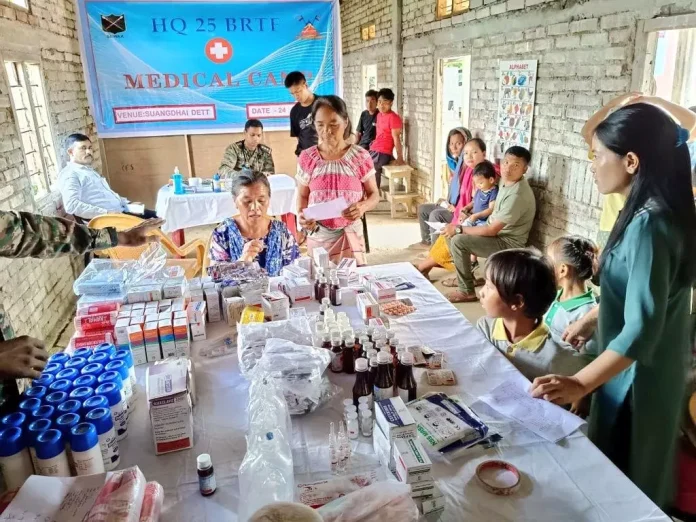IMPHAL, June 27: Marking two years since the outbreak of unrest in Manipur, leading health and civil rights activists from across India have written to President Droupadi Murmu, demanding immediate and comprehensive action to address the collapsing public health infrastructure in the conflict-affected state. Highlighting the urgent need for government relief, the letter frames the “right to health” as an essential component of the constitutional right to life and dignity.
The appeal comes amid continued instability in Manipur, now under President’s Rule, and underscores the devastating impact of prolonged violence on essential services, particularly education and healthcare. The effort is spearheaded by pan-Indian alliances like the National Health Rights Alliance, All India Feminist Alliance (ALIFA), and National Alliance for Justice, Accountability and Rights (NAJAR), operating under the broader platform of the National Alliance of People’s Movements (NAPM).
The signatories emphasized that Manipur’s fragile healthcare system has collapsed further since the violence escalated in 2023. Hospitals and clinics have been damaged or rendered non-functional, medical supplies have dwindled, and threats to health workers have created critical staffing shortages. Thousands of people displaced by the violence remain in overcrowded relief camps with poor sanitation and inadequate medical care—conditions ripe for disease outbreaks.
“The healthcare system, already overstretched, has now been overwhelmed,” the statement read. “This reflects a systemic failure in crisis response, infrastructure resilience, and public health planning. Women, children, students, and the elderly have been disproportionately affected.”
The activists stressed that while health services in Manipur are concentrated around Imphal, many districts lack even basic infrastructure. Relief camps in the hills and valley remain severely underserved. The letter calls for equitable healthcare access, regardless of gender, ethnicity, or religion, and urges proactive governance to restore dignity and well-being in the state.
The activists laid out a comprehensive ten-point charter of demands to address both the immediate and long-term public health crisis:
- Constitute a Special Task Force headed by an official with Cabinet Secretary-level powers and equipped with special funds to assess and act on the public health crisis within a two-month timeline.
- Form a regional public health committee of unbiased experts to oversee implementation based on Manipur’s complex socio-political and cultural context.
- Immediately recruit medical personnel, including doctors, nurses, and support staff, to fill critical vacancies in hospitals and health centres.
- Allocate additional central funds to strengthen healthcare, acknowledging Manipur’s history of conflict and its impact on public services.
- Ensure inter-departmental coordination among health, home affairs, disaster management, food and civil supplies, and social welfare ministries to protect vulnerable groups including tribal communities, women, children, disabled persons, and LGBTQ+ individuals.
- Prepare for the monsoon season by ensuring robust disease prevention and sanitation measures, especially in relief camps and remote villages.
- Eliminate all forms of discrimination in healthcare delivery across gender, religion, and ethnicity.
- Establish decentralized health infrastructure in underserved districts with urgent priority for functional community health centres in Lamka, particularly Tuibuang and Sangaikot.
- Strengthen and expand public health services, regulate private and corporate hospitals, provide free quality medicines, and integrate mental health services into primary care systems under a universal public healthcare model.
- Pass a comprehensive Right to Health law at the state level to ensure long-term legal protection for health-related rights of all citizens.
In addition to the policy proposals, the signatories urged President Murmu to visit Manipur personally, interact with affected communities in both hills and valleys, and take first-hand account of the crisis. They called for a demonstration of strong political will and compassion to uphold the right to health, life, safety, and dignity for all residents of Manipur.

